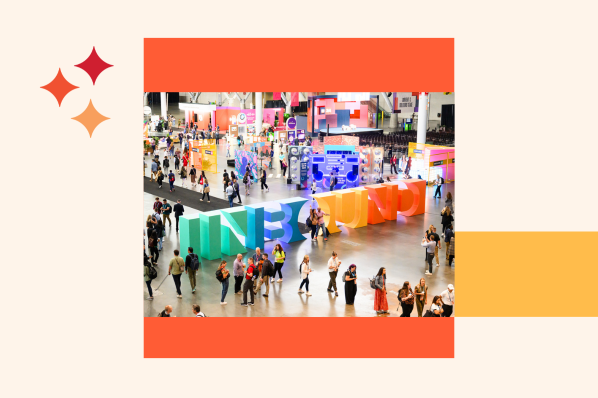All eyes have been on OpenAI recently – I mean who’s going to beat that drama? – but in the meantime, Google’s AI research team DeepMind has been hard at work.
Click Here to Subscribe to HubSpot's AI Newsletter
It seems like every day, they’re coming out with a new model solving problems you and I never even knew existed.
Here are some things DeepMind is working on that you should know about.
The launch of Gemini has been delayed.
Back in September, Google teased the launch of a new large language model called Gemini, which would rival OpenAI’s ChatGPT.
Until now, no AI model has been able to compete with OpenAI’s GPT-4. Gemini was highly anticipated as it promised multimodal features – meaning it can understand and produce not only text but also images and audio – and was expected to be trained on better data sets.
It was so close to launch that the company released a beta version to select companies. Now, The Information reports its formal launch will be delayed until early 2024.
This delay could be due to a number of reasons but one thing’s for sure: They can’t afford to have another release like Bard, which wasn’t well received.
DeepMind has partnered with YouTube to create AI songs.
Earlier this month, DeepMind announced the launch of Lyria, a new music generation model. It’s understands everything from melodies to verses and “excels at generating high-quality music,” according to the DeepMind team.
The model powers two experiments that are live on YouTube today. The first is called Dream Track and allows content creators to generate 30-second soundtracks performed by one of nine top artists who participated in the model’s development, including Demi Lovato, John Legend, and T-Pain.
All a user has to do is pick a topic, and the soundtrack will come together, complete with a backing track, lyrics, and AI-generated voice of the artist.
The second experiment involves a suite of AI-powered music tools. Unlike Dream Track, users will be fully involved in the production aspect of the music.
Want to turn that melody in your head into an orchestral score? Or maybe turn a hum into a piano following the same key and cadence? It’s all possible with Lyria.
The idea here is to equip musicians and content creators with the tools to transform audio into exactly what they’re looking for.
A new scientific model called GNoME is discovering materials.
Last week, the DeepMind team published a paper announcing the discovery of over 2 million crystals, through a new deep learning tool called GNoME.
To understand how cool this is, here’s some background.
Crystals are used in everyday products to generate new technology, from computer chips to solar panels. To be functional, they must be stable – otherwise, they’ll decompose.
Here where things get tricky: Discovering the right combination of elements to create new crystal structures is a timely and expensive process. It’s a whole lot of math and a whole lot of science to understand which compositions will lead to stable crystals and which ones will decompose.
GNoME, which stands for Graph Networks for Materials Exploration, is designed to speed up and streamline this process.
For scale, human experimentation has led to the discovery of 20,000 stable crystals. Through computational efforts, that number grew to 48,000. With this work, they’ve predicted 2.2 million viable crystal structures, with 380,000 deemed highly stable.
These predictions are now available to research teams, which will lead to better tech products for daily use and more innovation.



![Is it Real or AI? Test Your Detection Skills [Round 4]](https://www.hubspot.com/hubfs/real%20or%20ai%204.png)



![Which AI Tool Writes the Best Marketing Copy? [I Tested Several Different Tools]](https://www.hubspot.com/hubfs/Untitled%20design%20%2842%29-1.jpg)



![Real or AI-Generated? You Guess [Quiz]](https://www.hubspot.com/hubfs/real%20or%20ai.png)